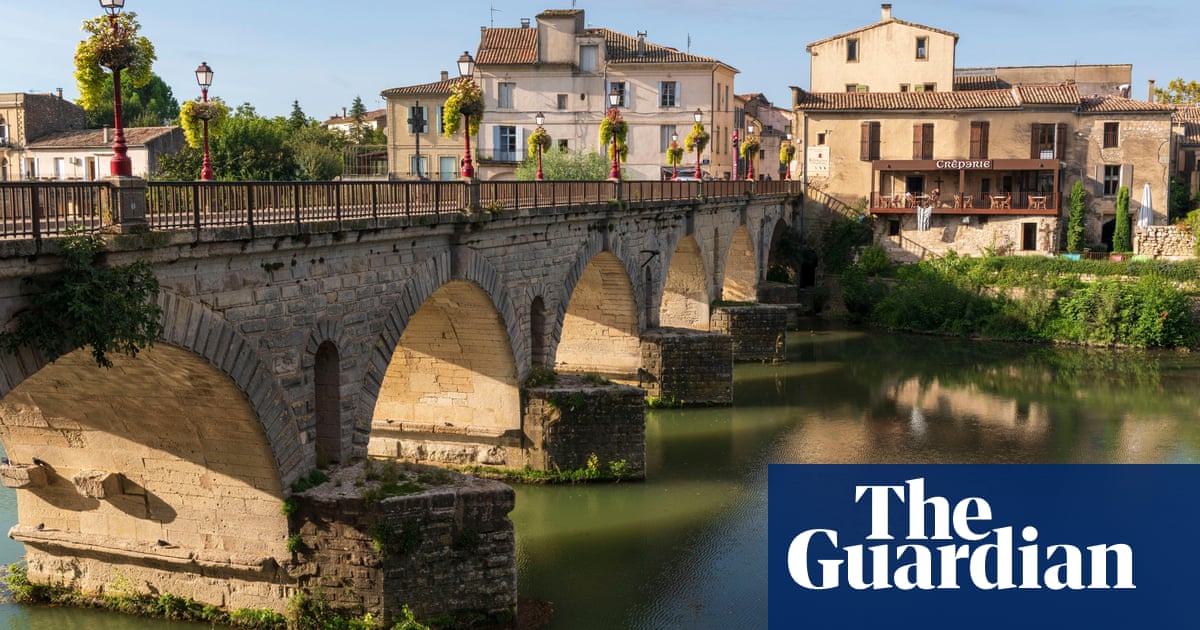Labour has cut its green investment plans by half, as Keir Starmer ended weeks of speculation to confirm the biggest U-turn of his leadership in a move designed to bolster the party’s chances at the general election.
Starmer and his shadow chancellor, Rachel Reeves, announced on Thursday that they were cutting the scale of the green prosperity plan from £28bn a year to under £15bn, only a third of which will be new money.
The announcement ends a protracted internal battle within Labour over the policy, with some senior officials urging Starmer to stick to his green commitments while others warned it would be an electoral liability.
The reversal infuriated green campaigners, who said it would push up costs in the long term and make it harder for Labour to hit its ambitious green targets.
Speaking to reporters in Westminster, Starmer said: “We will not reach the £28bn – the £28bn therefore is stood down and we focus on the outcomes. We want to get to that place because at the moment all you ever asked about is the size of the cheque and we want to have an argument about the outcomes, which is what matters.”
He added: “We announced the £28bn two and a half years or so ago, when interest rates were very, very low. Since then Liz Truss crashed the economy and other damage has been done. [Interest rates] are now very, very high – interest on government debt is already tens of billions of pounds a year.
“We’ve always said we have to be within the fiscal rules and fiscal rules come first.”
Labour announced the £28bn spending plan in 2021, as Reeves promised to be the UK’s “first green chancellor”. She said at the time the money would be spent on battery manufacturing, hydrogen power, offshore wind, tree planting, flood defences and home insulation.
Since then the party has come under increasing attack over the plan, as Starmer and Reeves struggled to explain how they could stick to the spending commitment and keep a separate promise to cut government debt levels in the long term.
The Guardian revealed last week that Starmer had decided to scale back the plan after heavy lobbying from aides, such as Morgan McSweeney, Labour’s campaign chief, who said sticking to it would be an electoral liability.
Despite this, Starmer continued to use the £28bn figure as recently as this week, when he told Times Radio: “We want to have clean power by 2030 … That’s where the £28bn comes in – that investment that is desperately needed for that mission.”
On Thursday, however, the Labour leader told reporters he no longer believed the party needed to spend £28bn to fund its 2030 target.
Instead, Labour would spend just over £4.7bn a year, on top of £10bn of green schemes it says the government has already committed to.
Around half of that money will come from changes to the government’s oil and gas windfall tax, with Labour planning to raise the rate from 75% to 78% and extend it until the end of the parliament. The other half will come from new borrowing.
The biggest cuts have been to the party’s home insulation scheme. Labour had previously promised to spend up to £6bn a year insulating 19m homes over a decade.
Under the revised plans Starmer and Reeves intend to spend just £6.6bn over the parliament – an average of £1.3bn a year.
The cuts in spending on the warm homes plan will also mean the party reducing its targets for the number of properties it can insulate. Starmer said Labour now intended to insulate 5m homes over the first five years of government, and that it would take as long as 14 years to reach the 19m target.
Other schemes, including a £7.3bn national wealth fund and an £8.3bn national energy supplier called Great British Energy, will remain, in an effort to meet the party’s clean power pledge.
Reeves said on Thursday: “Something had to give if we were going to be within our fiscal rules and to achieve clean power by 2030. We have got to get on with the national wealth fund and GB Energy, and so we have scaled back our ambition on warm homes.”
She added: “Would we like to go further and faster? Yes. Are we constrained by the inheritance that we’re likely to face? Yes, we absolutely are.”
Labour’s U-turn has dismayed many green campaigners, who say their energy targets will be difficult to hit without the promised level of spending.
Areeba Hamid, the co-executive director of Greenpeace UK, said: “Starmer’s caved like a house of cards in the wind.
“As well as scaling the investment back by around 80%, just a fraction will be spent on insulating homes, and not even a penny will be spent on public transport. These are two of the sectors in greatest need of new government investment to seize the opportunities of green growth, level up the country and lower bills.”







